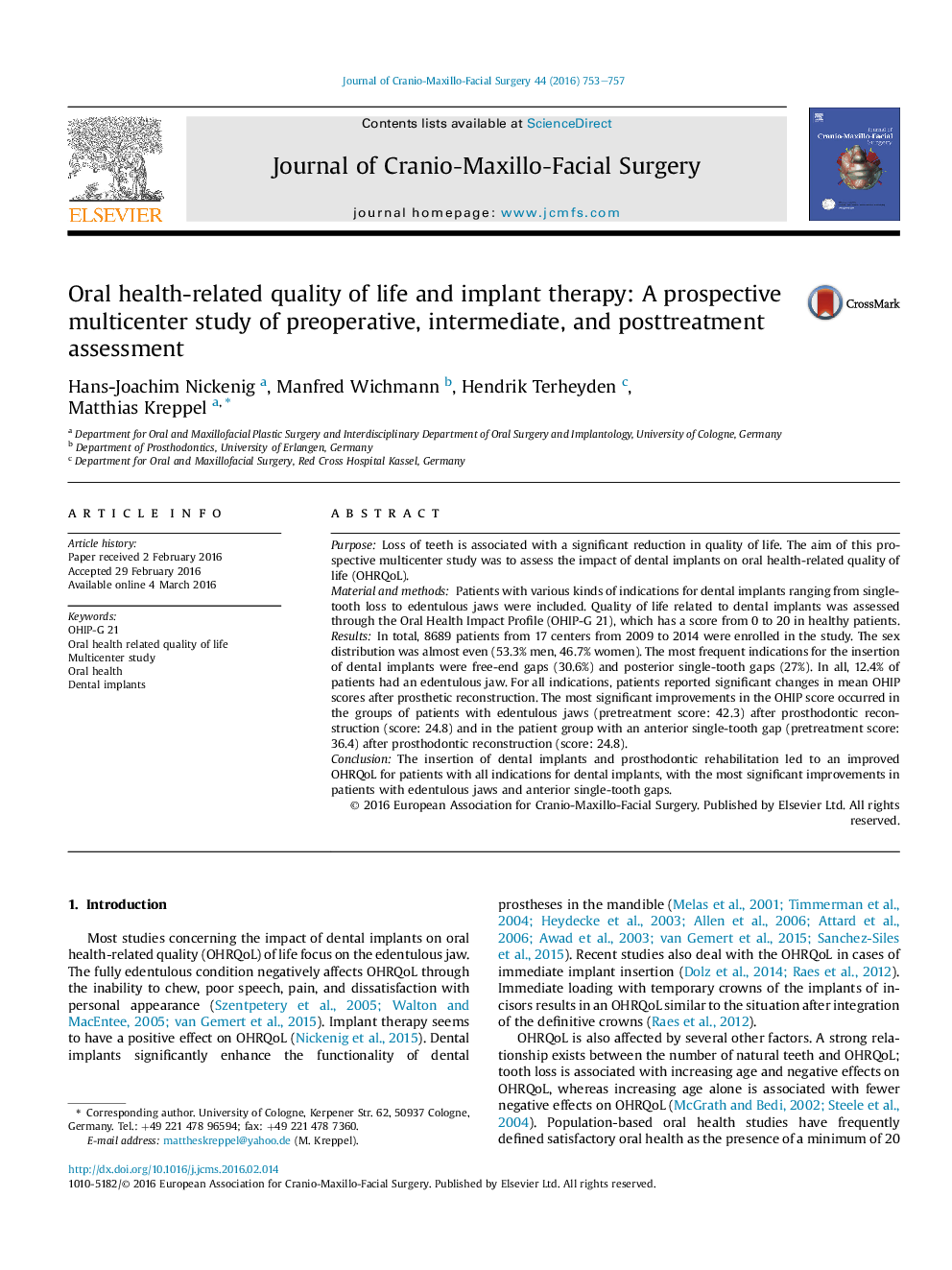| Article ID | Journal | Published Year | Pages | File Type |
|---|---|---|---|---|
| 3142066 | Journal of Cranio-Maxillofacial Surgery | 2016 | 5 Pages |
PurposeLoss of teeth is associated with a significant reduction in quality of life. The aim of this prospective multicenter study was to assess the impact of dental implants on oral health-related quality of life (OHRQoL).Material and methodsPatients with various kinds of indications for dental implants ranging from single-tooth loss to edentulous jaws were included. Quality of life related to dental implants was assessed through the Oral Health Impact Profile (OHIP-G 21), which has a score from 0 to 20 in healthy patients.ResultsIn total, 8689 patients from 17 centers from 2009 to 2014 were enrolled in the study. The sex distribution was almost even (53.3% men, 46.7% women). The most frequent indications for the insertion of dental implants were free-end gaps (30.6%) and posterior single-tooth gaps (27%). In all, 12.4% of patients had an edentulous jaw. For all indications, patients reported significant changes in mean OHIP scores after prosthetic reconstruction. The most significant improvements in the OHIP score occurred in the groups of patients with edentulous jaws (pretreatment score: 42.3) after prosthodontic reconstruction (score: 24.8) and in the patient group with an anterior single-tooth gap (pretreatment score: 36.4) after prosthodontic reconstruction (score: 24.8).ConclusionThe insertion of dental implants and prosthodontic rehabilitation led to an improved OHRQoL for patients with all indications for dental implants, with the most significant improvements in patients with edentulous jaws and anterior single-tooth gaps.
